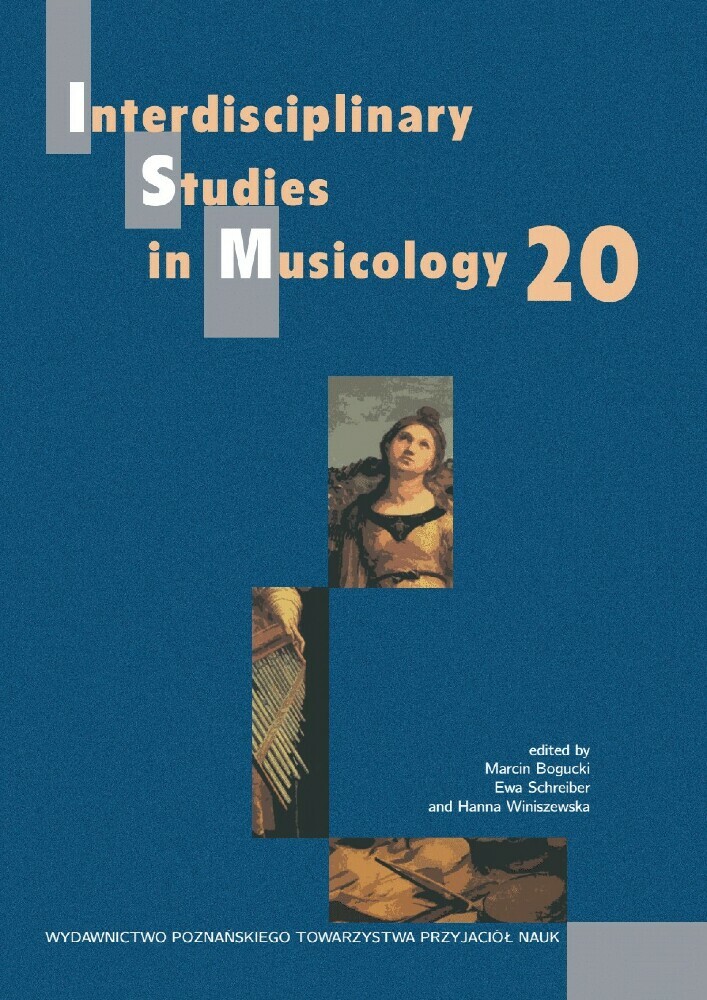Abstract
The advent of new music technologies has led to a rapid growth of the audio preservation field. Music is not independent of its medium, and this growing loss of independence calls for a transdisciplinary approach with a strong technological component. Musical compositions created in the second half of the twentieth century exist in the intersection of technology, embodiment, and sound and thus widen the importance of aspects such as human and non-human interactions. This article will reflect on these issues and how they reframe (digital) philology methods through the works of Constança Capdeville. The works by this seminal artist are accompanied by an extensive archive that includes scores, recorded sounds, video and images, among other documents. It will be demonstrated how a reflexive approach to digital philology can bring concealed archival stories to light while fostering new meanings on what it means to preserve our sound heritage. Resource optimisation is one of the reasons methods of traditional philology are particularly useful for the preservation of contemporary musical heritage. Today the amount of information is excessive, and categorisation and organisation are complex. Most information exists in the form of digitised documents, that comply with certain requirements traditionally applied to secular paper registers while assessing qualities such as reliability and authenticity. Traditional philology approaches framed around these qualities are insufficient for born-digital documents. A reflexive approach to digital philology, focussed both on the creation of digital resources (from digitalisation to cataloguing) and the criticism of digital sources, as a solution the digital treatment of documents is proposed. A comparative approach will be used to understand in what ways digital and analogue media intertwine in the forms we think, reflect, historicise, and preserve our sound archives, and how we make visible aspects that were previously concealed through new forms of categorising and digitising documents.
References
Arbo, A. (2018). From the document to the work: Ontological reflections on the preservation and restoration of musical artefacts. Journal of New Music Research, 47(4): 300–308. DOI: https://doi.org/10.1080/09298215.2018.1486431
Banza, A. P. (2017). Da antiga à nova Filologia: práticas de edição de textos modernos. In R. Trachsler, F. Duval, L. Leonardi (éd.), Actes du XXVIIe Congrès international de linguistique et de philologie romanes (Nancy, 15–20 juillet 2013). Section 13: Philologie textuelle et éditoriale. ATILF.
Benedictis, A. I. de (2011). Materiali parziali o strutture fungibili? Nuove prospettive filologichesu ‘Honeyrêves’, ‘Don Perlimplin’ e ‘SerenataIV’ di Bruno Maderna. Il Saggiatore Musicale. Rivista semestrale di musiologia, anno XVIII, 1-2: 139–171.
Bossis, B. (2006). The Analysis of Electroacoustic Music: from sources to invariants. Organised Sound, 11(2): 101–112. DOI: https://doi.org/10.1017/S135577180600135X
Bressan F. (2018). A Philological Approach to Sound Preservation. In L. Levenberg, T. Neilson, D. Rheams (Eds), Research Methods for the Digital Humanities (pp. 243–261). Palgrave Macmillan, Cham. https://doi.org/10.1007/978-3-319-96713-4_14
Bressan, F. (2017). Philology in the preservation of audio documents. Customized versus readymade approaches. In A. Tandon, A. Slomska, J. Opoku-Boateng, & D. Abbazia (Eds.), Unlocking Sound and Image Heritage: Selected Readings fromt the 2015 SOIMA Conference (pp. 69-74). International Centre for the Study of the Preservation and Restoration of Cultural Property (ICCROM). DOI: https://doi.org/10.18146/soima2015.2.11
Bressan, F., & Canazza, S. (2013). A Systemic Approach to the Preservation of Audio Documents: Methodology and Software Tools. Journal of Electrical and Computer Engineering, 2013: 1–22.
Castro, I. de (1995). O Retorno à Filologia. In C. de Cunha & P. R Dias Pereira (Eds.), Miscelânea de Estudos Linguísticos, Filológicos e Literários in Memoriam Celso Cunha (pp. 511-520).
Leman, M., & Joren S. (2018): Beyond documentation – The digital philology of interaction heritage. Journal of New Music Research, 47(4), 309–320. DOI: https://doi.org/10.1080/09298215.2018.1479428
Magalhães, F., & Pires, I. (2019). Recovering Music-Theatre Works Involving Electronic Elements: The case of Molly Bloom and FE...DE...RI...CO.... Organised Sound, 24(1), 96-108. DOI: https://doi.org/10.1017/S1355771819000098
Nogueira, A. (2018). Que Futuro para o Património Musical Contemporâneo Nacional? Documentar para Preservar (Doctoral dissertation, Universidade NOVA de Lisboa, Portugal). Retrieved from http://hdl.handle.net/10362/58912
Orcalli, A. (2017). Recorded music: from the ethics of preservation to the critical editing. In Luca Cossettini & Angelo Orcalli (Eds.), Sounds, Voices and Codes from the Twentieth Century (pp. 3-81). University of Udine: Department of Languages and Literatures, Communication, Education and Society.
Orio, N., & Zattra, L. (2007). Audio Matching for the Philological analysis of electroacoustic music. Proceedings of the International Computer Music Conference, 2007, 157–164.
Straebel, V. (2009). The ‘Project for Magnetic Tape’ (1952/53): Challenging the Idea of a Critical Edition of Historic Music for Recording Media. Paper at Music: Notation and Sound, joint conference of the International Association of Music Libraries (IAML) and the International Musicological Society (IMS), Amsterdam.
Turner, J. (2014). Philology: The forgotten origins of the modern humanities. Princeton: Princeton University Press.
Zattra, L. (2006). The critical editing of computer music. Paper at Electroacoustic Music Studies Conference (EMS06) – Theme: Terminology and Translation, Beijing, China. Retrieved: http://www.ems-network.org/spip.php?article236
Zattra, L. (2007). The Assembling of ‘Stria’ by John Chowning: A Philological Investigation. Computer Music Journal, 31(3): 38–64.

